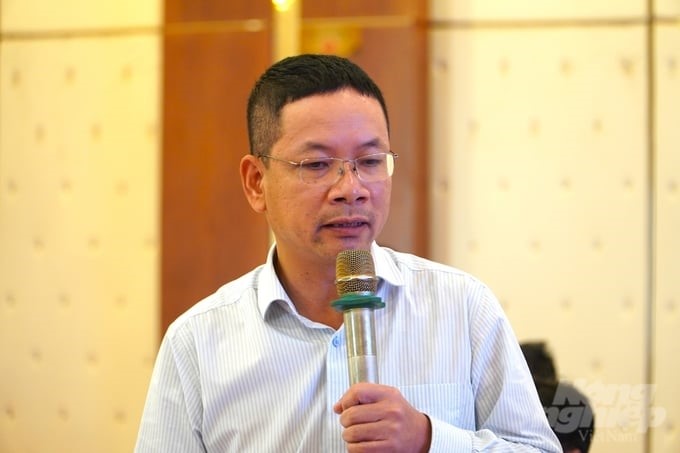- Giới thiệu
- Nhóm Công tác
- Tin tức
- Thông tin về FTA
- Tài Liệu
- Sự kiện
- Liên hệ
Might need a specific mechanism to produce 1 million hectares of high-quality rice
According to a representative of the Ministry of Agriculture and Rural Development (MARD), immediately after the project of 1 million hectares of high-quality rice was approved by the Prime Minister, the Ministry established a Steering Committee to implement the project, with participating members including the leaders of Ministries and branches, the State Bank of Vietnam, the World Bank (WB), and leading representatives of 12 provinces and cities in the Mekong Delta region.

To achieve the project's goals, Mr. Ton That Son Phong, Deputy Head of the MARD's Management Board of Agricultural Projects, said that from now until 2030, the Ministry is expected to need about USD 2.7 billion from capital sources.
In recent times, MARD has proactively worked with many international organizations, such as the WB, the Asian Development Bank (ADB), the SNV Netherlands Development Organization, and the International Rice Research Institute (IRRI). Up until now, the WB has committed to providing loans and technical support, while IRRI and a number of other organizations have pledged to participate in technical support.
On that basis, MARD, along with 12 Mekong Delta provinces and cities and other Ministries and branches, has proposed the Project on Infrastructure and Technical Support for High-Quality and Low-Emission Rice in the Mekong Delta (referred to as the Technical Support Project), with loan capital from the WB.
The expected implementation time of this project is about 6 years (2026–2031). Total investment is estimated at USD 430 million, equivalent to over VND 10,300 billion. Of which, the loan from the WB is about USD 330 million (equivalent to VND 7,953 billion), and the reciprocal capital from the Central and localities is USD 100 million (equivalent to VND 2,410 billion).
The goal is to invest in infrastructure systems and apply sustainable farming measures to rice production. Thereby increasing the value and sustainably developing the rice industry. Improving production and business efficiency, increasing the income and life of rice growers, protecting the environment, adapting to climate change, and reducing greenhouse gas emissions. From there, contribute to implementing Vietnam's commitments to the International.
The Technical Support Project includes three components. Component 1 will develop infrastructure for high-quality, low-emission rice value chains. The estimated investment capital for this component is about USD 404.9 million. Of this, WB capital is about USD 327.5 million; the rest is reciprocal capital from the Government and localities.
Component 2 is to develop and transfer technology, with an estimated capital of about USD 16.1 million. Of which, WB's loan capital is USD 2.5 million, and the reciprocal capital from the Government and localities is USD 13.6 million.
Component 3 is project management, estimated at about USD 9 million in reciprocal capital from the Government and localities. This capital source includes management capital at the Central and provincial levels and monitoring and evaluation activities.
Through studying the proposed Technical Support Project, Mr. Pham Hoang Mai, Director of the Department of Foreign Economic Relations (Ministry of Planning and Investment), pointed out a number of remaining issues, such as: not fully mentioning the necessity of the project of 1 million hectares of high-quality rice; project items mentioning many issues of infrastructure support; some contents are not consistent with ODA loan principles, etc.
From there, Mr. Mai suggested that MARD's specialized agencies need to consider, calculate, and adjust the proposal to ensure that the Technical Support Project is highly convincing.
At the same time, Mr. Mai proposed that MARD could ask for a specific mechanism from the National Assembly to allow the Ministry to be the investor in the Technical Support Project, with the right to transfer loans and tasks to localities.
On the WB side, if it can commit to purchasing all emission reductions from the project of 1 million hectares of high-quality rice at a clear price, this will be a feasible solution to facilitate the Technical Support Project during the approval process.
Tin liên quan
PSAV Attends the 30th Anniversary Celebration of Cargill Vietnam2025/10/23
Plant health management helps increase coffee yield up to 15%2025/10/16
An Giang to host 2025 OCOP forum for sustainable development2025/09/25
Viet Nam and France foster cooperation on blue economy and sustainable environment2025/09/29



 Điều lệ hoạt động
Điều lệ hoạt động



















































